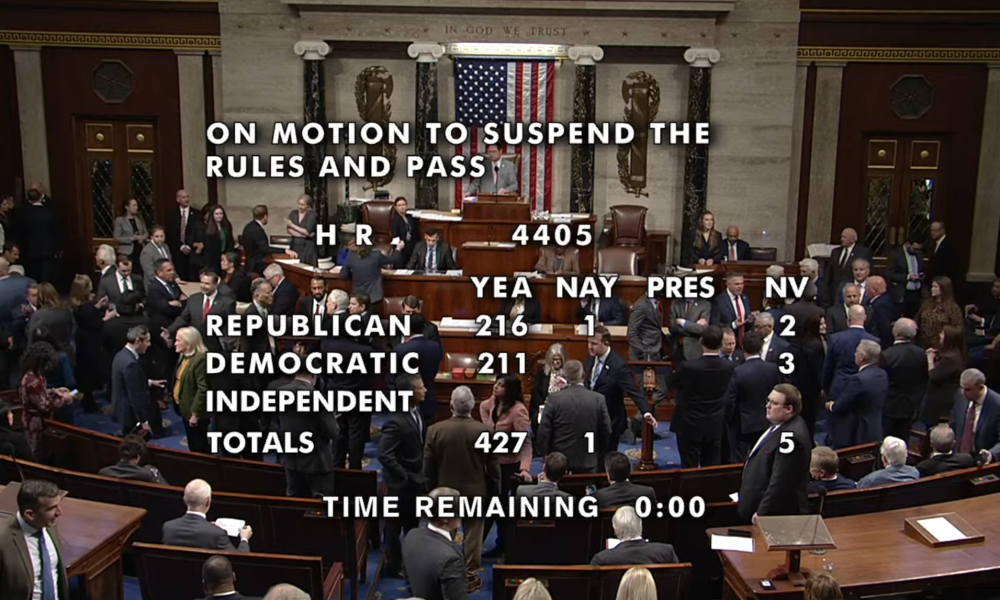Politics
House passes Epstein files transparency bill after Trump reverses position

The U.S. House of Representatives has voted overwhelmingly to require the public release of files from the federal investigation into Jeffrey Epstein and Ghislaine Maxwell, approving the measure 427 to 1 in a rare bipartisan vote.
The vote took place on Tuesday, when lawmakers advanced the Epstein Files Transparency Act after a bipartisan group used a discharge petition to force the bill to the floor.
The petition, led by Rep. Thomas Massie, a Republican from Kentucky, and Rep. Ro Khanna, a Democrat from California, gathered the required 218 signatures to bypass House leadership and compel a vote.
All Democrats and all but one Republican supported the measure; the lone “no” vote came from Rep. Clay Higgins, a Republican from Louisiana.
The bill would require the Department of Justice, the FBI, and U.S. Attorneys’ offices to release all unclassified documents, communications, and investigative materials related to Epstein and Maxwell within 30 days of the act becoming law.
It allows redactions to protect victims and to avoid interfering with active investigations but prohibits withholding information on the basis of “embarrassment, reputational harm, or political sensitivity.”
Tuesday’s vote followed a significant shift from President Trump, who days earlier was pressuring Republicans to block the measure. Over the weekend, he reversed his position and told House Republicans to support the bill, saying, “we have nothing to hide.”
Before reversing course, Trump publicly attacked lawmakers who backed the discharge petition, dismissing the effort as a Democratic “hoax.” His criticism included Congresswoman Marjorie Taylor Greene, one of only four Republicans to sign it.
Trump called Greene a “traitor” and a “ranting lunatic” and withdrew his endorsement after she joined the effort to force the vote.
The bill now moves to the Senate, where Democratic Minority Leader Chuck Schumer said he will move to “immediately” take up and pass the measure, potentially by unanimous consent.
President Trump has said he will sign the bill if it reaches his desk in its current form.

-

 Health5 days ago
Health5 days agoFrance confirms 2 MERS coronavirus cases in returning travelers
-

 Health1 week ago
Health1 week ago8 kittens die of H5N1 bird flu in the Netherlands
-

 Entertainment5 days ago
Entertainment5 days agoJoey Valence & Brae criticize DHS over unauthorized use of their music
-

 US News2 days ago
US News2 days agoMagnitude 7.0 earthquake strikes near Alaska–Canada border
-

 Legal1 week ago
Legal1 week ago15 people shot, 4 killed, at birthday party in Stockton, California
-

 US News1 week ago
US News1 week agoFire breaks out at Raleigh Convention Center in North Carolina
-

 Legal4 days ago
Legal4 days agoWoman detained after firing gun outside Los Angeles County Museum of Art
-

 Health6 days ago
Health6 days agoEthiopia reports new case in Marburg virus outbreak




